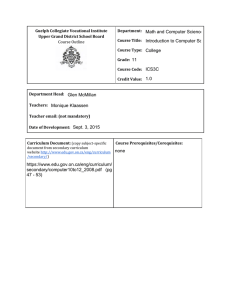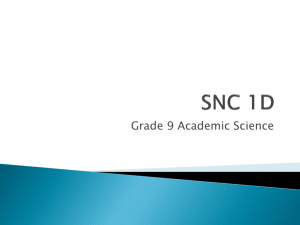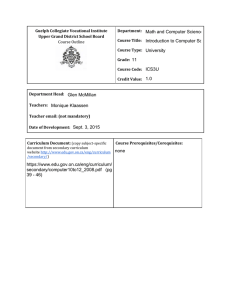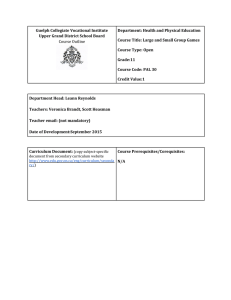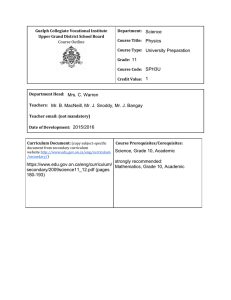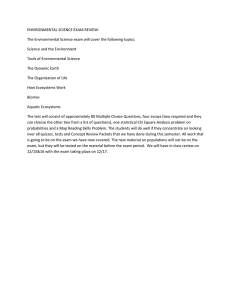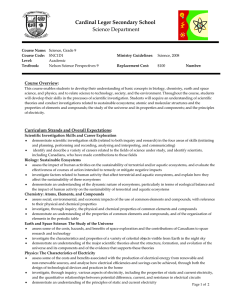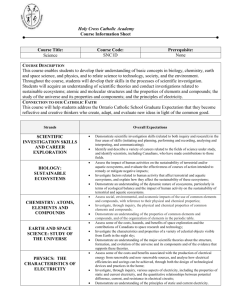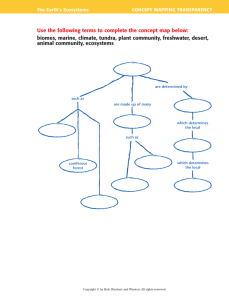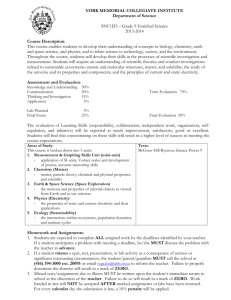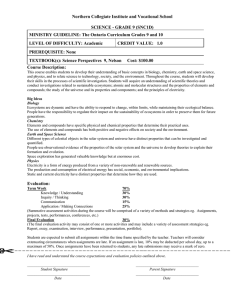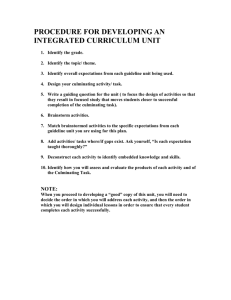Document 10531999
advertisement
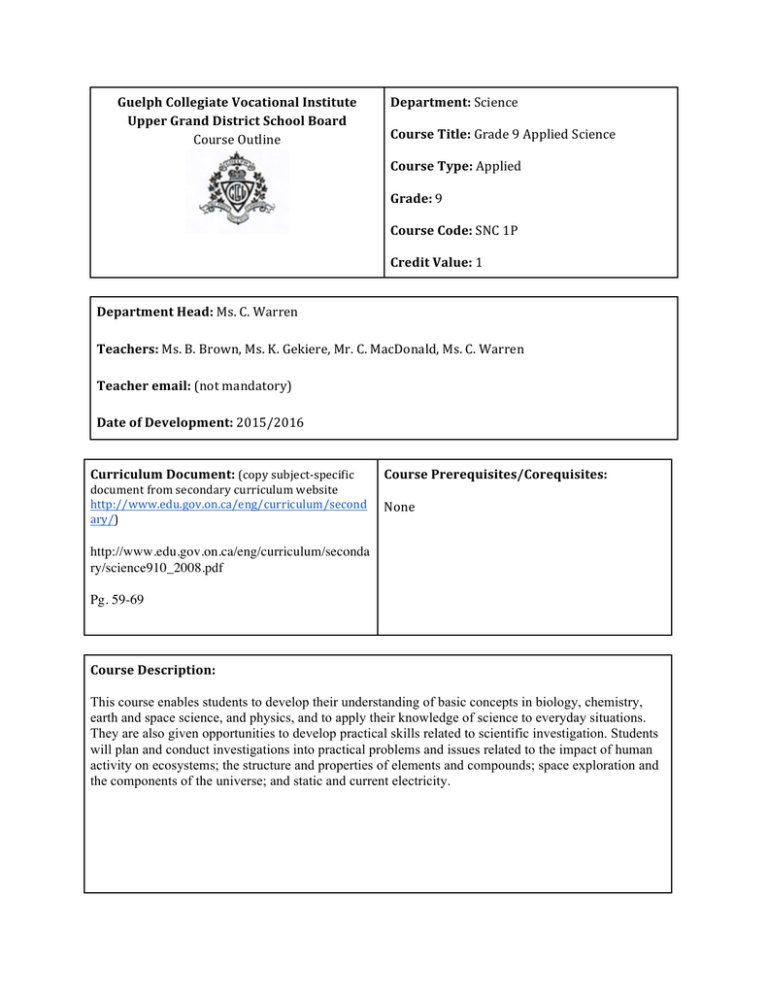
Guelph Collegiate Vocational Institute Upper Grand District School Board Course Outline Department: Science Course Title: Grade 9 Applied Science Course Type: Applied Grade: 9 Course Code: SNC 1P Credit Value: 1 Department Head: Ms. C. Warren Teachers: Ms. B. Brown, Ms. K. Gekiere, Mr. C. MacDonald, Ms. C. Warren Teacher email: (not mandatory) Date of Development: 2015/2016 Curriculum Document: (copy subject-­‐specific document from secondary curriculum website http://www.edu.gov.on.ca/eng/curriculum/second ary/) Course Prerequisites/Corequisites: None http://www.edu.gov.on.ca/eng/curriculum/seconda ry/science910_2008.pdf Pg. 59-69 Course Description: This course enables students to develop their understanding of basic concepts in biology, chemistry, earth and space science, and physics, and to apply their knowledge of science to everyday situations. They are also given opportunities to develop practical skills related to scientific investigation. Students will plan and conduct investigations into practical problems and issues related to the impact of human activity on ecosystems; the structure and properties of elements and compounds; space exploration and the components of the universe; and static and current electricity. Term Work (70% of the final mark) Unit Title, Big Ideas, and Unit Culminating Tasks Biology • Ecosystems consist of a variety of components, including, in many cases, humans. • The sustainability of ecosystems depends on balanced interactions between their components. • Human activity can affect the sustainability of aquatic and terrestrial ecosystems. Chemistry • Elements and compounds have specific properties that determine their uses. • The use of elements and compounds has both positive and negative effects on society and the environment. Earth and Space Science • Celestial objects in the solar system and universe have specific properties that can be investigated and understood. • Technologies developed for space exploration have practical applications on Earth. Physics • Electricity is a form of energy produced from a variety of non-renewable and renewable sources. • The production and consumption of electrical energy has social, economic, and environmental implications. • Static and current electricity have distinct properties that determine how they are used. Culminating Tasks/Exams (30% or the final mark) Course Culminating Task/Exams and Description Practical Exam – Students are evaluated during class time Written Exam – Students are evaluated during the exam period Based on the range of students’ learning needs, a selection from the strategies listed below may be utilized. Refer to list of teaching and assessment strategies. Teaching Strategies: Structured overview, explicit teaching, compare and contrast, demonstrations, problem solving, inquiry, field trips, conducting experiments, field observations, model building, reports, homework, research projects, assigned questions, brainstorming, peer practice, discussion, laboratory groups Assessment and evaluation strategies: Self evaluation, peer evaluation, quizzes, observation, written response, test, exam, demonstration, interview Textbooks/Learning Resource Materials (align with Policy 603) Science Links 9; McGraw-Hill Ryerson Fees for Learning Materials/Activities Learning Materials/Activities Cost Please refer to the GCVI Student Handbook for our school policies on: ● academic integrity ● late and missed assignments
